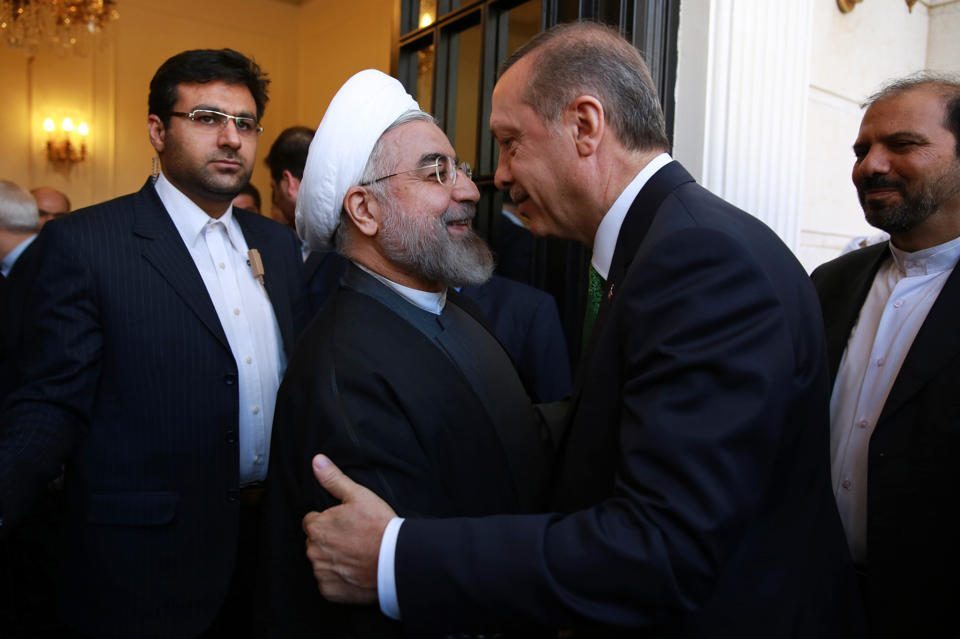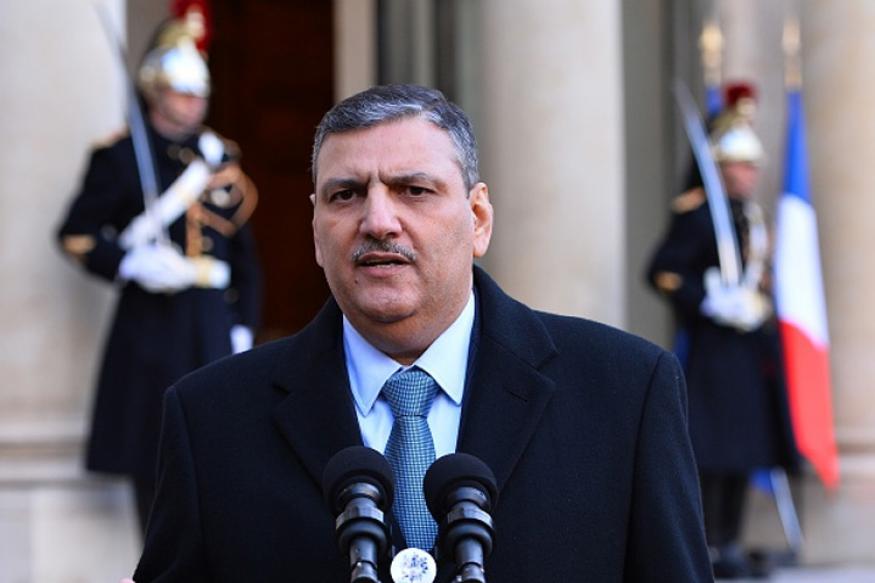
Iran’s foreign minister visited Turkey for the second time in two months for talks on how to improve bilateral ties, boost mutual trade, and bolster energy cooperation, while the battles in Syria witnessed a harsh and bloody turn in recent weeks, with Iranian militias battling Turkish-backed rebels for control of the city of Aleppo.
This rapprochement between Sunni-majority Turkey and Iran’s Shiite theocracy, which began earlier this year and picked up pace after the failed July coup against Turkish President Recep Tayyip Erdogan , defies the easy characterizations of the region’s mayhem as a sectarian conflict.
The Assad regime forces, backed by Russian air power, Iranian ground forces and Shi’ite militia fighters from Iran, Iraq, and Lebanon, has been tightening its grip on rebel-held districts of Aleppo this year, and this summer achieved a long-held goal of fully encircling the area.
In the same time, the Turky-backed rebels were fighting their own battles in northern Syria, and repelling offensive by Iranian militias at the same time. Turkey also said repetadely that it is with the Syrian people and against any threat to them.
However, that didn’t prevent Turkey from making alliance with Iran or at least being close to each other in some points.
It also shows the ability of these two regional powers to compartmentalize their differences over the future of Syria—and to focus on areas where they share a common agenda.
These overtures, unsurprisingly, have caused unease among the countries that used to think of Turkey as an ally—in the West and even more so among the Sunni Arab states that consider Iran an existential enemy.
“Turkey is in a balancing game, trying to mend fences with everyone around it. But one would expect Turkey to be more understanding of Saudi Arabia and the rest of the Gulf in their stance against Iranian expansion in the area,” said Abdulhaleq Abdulla, a political scientist in the United Arab Emirates.
This balancing doesn’t mean that Turkey is breaking up with the Gulf. Saudi Arabia’s Crown Prince Mohammed bin Nayef also visited Ankara in recent days, trying to work out a common approach with Mr. Erdogan. He affirmed after his talks that the kingdom and Turkey “have the same thinking on all issues.” Mr. Erdogan reciprocated by criticizing the U.S. Congress for allowing victims of the Sept. 11, 2001 attacks to sue the Saudi government.
On the matter of Iran, however, the thinking in Ankara and Riyadh is clearly diverging. Unlike Saudi Arabia and its allied Gulf monarchies, Turkey has maintained full diplomatic relations with Tehran and doesn’t feel its domestic security endangered by the Iranian regime.
What it does have good reason to fear is the separatist insurgency by the PKK Kurdistan Workers’ Party in Kurdish-populated areas of southeast Turkey. Iran, too, in recent months witnessed a revival of the largely dormant insurgency in its own Kurdish regions. In part because of these domestic concerns, neither country is happy with the large territorial gains made over the past year by the PKK-affiliated Kurdish militias in northern and eastern Syria.
“Turkey, Iran, Syria—they have a common Kurdish problem and they all see the Kurds as a threat to their national existence. And even though Turkey and Iran are on opposite sides of the Syrian war, they have a shared interest when it comes to the Kurds. They see every gain by the Kurds in Syria as affecting their own populations,” said Mutlu Civiroglu, a Syrian-Kurdish political analyst.
Iran and Turkey, of course, also have a long history of dealing with each other as powerful states of comparable strength—states whose rivalry in centuries past enabled the encroachment into the Ottoman and Persian empires by Western powers and Russia. Theallegation by many Turkish officials that the U.S. may have played a role in the failed putsch against Mr. Erdogan—a coup attempt immediately condemned by Tehran—helped make Iran’s anti-Western stance more palatable in Ankara.
“Turkey and Iran are apples and apples—both are non-Arab Muslim countries with proud histories and a strong grievance-driven nationalism,” said Karim Sadjadpour, Iran expert at the Carnegie Endowment for International Peace.
Both governments also subscribe, to a different degree, to notions of political Islam. Mr. Erdogan’s ruling party draws its roots from the Muslim Brotherhood, a Sunni group originally created in Egypt that wasn’t particularly hostile to the Iranian regime until the Syrian conflict erupted in 2011. Iranian Supreme Leader Ayatollah Ali Khamenei, after all, once personally translated into Persian the books of the Brotherhood’s seminal ideologue Sayyid Qutb.
Such a complex shared history means that Turkey doesn’t view Iran through the same sectarian prism as Saudi Arabia and other Sunni Arab monarchies.
“Of all the Sunni countries in the region, Turkey is least obsessed with the Shiite nature of Iran,” said Soner Cagaptay, director of the Turkish program at the Washington Institute for Near East Policy. “When Turkey sees Iran, it sees Persians and not Shiites, which is a big difference with the Gulf countries which see Shiites first.”



